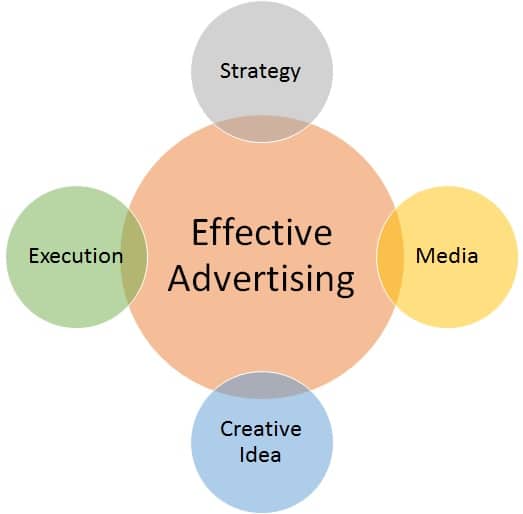Understanding the Basics of Advertising
Advertising is a quintessential component in the business world, a pivotal tool for creating brand awareness, increasing customers, and boosting sales. It is a vast field which encompasses various techniques and mediums to captivate audiences. However, the basics of advertising fundamentally revolve around effective messaging, target audience, and mediums.
Effective Messaging
The cornerstone of a successful advertisement lies in its message. It must resonate with the audience and drive them towards a designated action. Whether it’s promoting a product, raising brand awareness, or prompting a donation, the message must be clear, concise, and engaging. Obfuscation or excessive information can distract from the central aim and disengage the audience.
Target Audiences
Identifying the target audience is a pivotal aspect of advertising. The content, messaging, and medium of your advertisement should be tailored according to your target audience demographics, such as their interests, age, socio-economic demographics, and more. Understanding your target audience helps to design an ad that will pique their interest and drive them towards your desired action.
Mediums of Advertising
The effectiveness of an advertisement is largely dependent on the chosen medium. Traditional forms of advertising include print, radio, and television. However, the onset of digital technology has revolutionized the world of advertising. Digital platforms, social media channels, and even mobile apps now play a significant role in connecting with audiences. Therefore, choosing the right medium for your message is crucial for a successful advertising campaign.
Types of Advertising: Traditional and Digital
Advertising is one of the indispensable components of marketing. There are two prevalent kinds: Traditional Advertising and Digital Advertising. While different in method, each type provides a unique set of advantages.
 Exploring the Unique Language Used in Advertising: An In-depth Analysis
Exploring the Unique Language Used in Advertising: An In-depth AnalysisTraditional Advertising
Traditional Advertising refers to the conventional methods of advertising that have been utilized by businesses for centuries. It includes formats such as print advertising (newspapers, magazines), broadcast (TV, radio) and outdoor advertising (billboards, flyers). Although seen as old-fashioned in this digital age, traditional advertising still carries a substantial influence especially in local markets. It provides a broad reach and is often trusted by older generations.
Digital Advertising
On the other hand, Digital Advertising employs more modern channels to reach consumers. It encompasses search engine advertising, social media advertising, and email advertising. Digital advertising allows businesses to target and reach their audience in a more personalized way, offering the ability to track and measure the performance of their campaigns. As digital capabilities continue to grow, so does the potential of digital advertising.
Choosing the Right Type
Both traditional and digital advertising have their merits. The choice between the two depends on a business’ goals, budget, target audience and the nature of the message they want to convey. While traditional might be ideal for local, broad reach campaigns, digital allows hyper-targeted, measurable campaigns which can be highly beneficial for small businesses or those just starting out.
The Role of Advertising in Business Growth
Advertising plays a significant role in driving business growth. It helps increase brand visibility, introduces new products, and voices business messages to the world. Through strategic target marketing, advertising helps businesses reach the correct audience, which potentially advances the business growth. Thus, advertising is a vital part of a business’s strategy.
Increasing Brand Visibility
One of the most direct ways in which advertising contributes to business growth is by increasing brand visibility. Advertising creates awareness about a business, its products, or services, thereby helping it to penetrate markets. A business with high visibility positions itself as a leader in its industry, which boosts consumer confidence and can directly impact sales positively.
 Exploring the Unique Language Used in Advertising: An In-depth Analysis
Exploring the Unique Language Used in Advertising: An In-depth Analysis Exploring Different Types: Comprehensive Guide to What Types of Advertising Exist
Exploring Different Types: Comprehensive Guide to What Types of Advertising ExistNew Product Introduction
Advertising is vital when a business launches new products or services. It creates hype about the new product, informing potential buyers about its features, benefits, and availability. This leads to an increase in initial sales, which could set the tone for a product’s overall performance in the marketplace. Therefore, effectively integrating advertising into a product launch is fundamental for business growth.
Target Marketing
Advertising enables businesses to focus on particular market segments, which results in a higher sales conversion rate. It does so by sending customized messages to each segment, based on their preferences, behaviors, and needs. Target marketing increases the effectiveness of advertising, leading to boosted sales and thus enhancing business growth.
Effective Advertising Techniques You Should Know
With the advertising landscape evolving at an unprecedented pace, it is essential to arm yourself with robust strategies that can help you thrive. The following Effective Advertising Techniques You Should Know are designed to achieve just that – maximizing your brand’s potential and increasing your ROI.
Understand Your Target Audience
At the heart of any successful advertising technique lies in-depth understanding of your target audience. This includes their interests, preferences, demographics and behavior. You should utilize analytics tools to identify the platforms on which your target audience spends most of their time, their peak interaction times, and the content they engage with the most. Crafting your advertising strategies around these insights invariably leads to better engagement and conversion rates.
Utilize Storytelling
One of the most powerful advertising techniques involves the art of storytelling. Today’s consumers appreciate and engage more with brands that can tell compelling stories about their products or services. The craft of integrating your brand’s values and mission into a captivating narrative can greatly enhance relatability, drive engagement, and boost brand loyalty.
 Exploring the Unique Language Used in Advertising: An In-depth Analysis
Exploring the Unique Language Used in Advertising: An In-depth Analysis Exploring Different Types: Comprehensive Guide to What Types of Advertising Exist
Exploring Different Types: Comprehensive Guide to What Types of Advertising Exist Tekashi’s Viral Act of Street Generacy: Unleashing Frenzy Amongst Followers
Tekashi’s Viral Act of Street Generacy: Unleashing Frenzy Amongst FollowersLeverage Social Proof
In an era where trust is a valuable currency, utilizing social proof in your advertising can be a game-changer. This technique involves showcasing reviews, testimonials, ratings, or endorsements from satisfied customers. This not only builds credibility but also encourages potential customers to trust your brand, propelling them further along the purchase journey.
Measuring the Impact of Advertising on Sales
The process of measuring the impact of advertising on sales involves a careful evaluation, analysis, and observation of advertising strategies and their direct and indirect effects on overall sales. This forms a significant part of return on investment (ROI) calculation and helps businesses steer their resources towards more productive advertising methods.
Defining Parameters for Measurement
Firstly, to measure the effect of advertising on sales, it is important to define clear and measurable parameters. These could range from an increase in sales volumes to an improvement in brand recognition. Defining these parameters helps businesses understand the specific impacts that an ad campaign brings about, allowing them to devise better strategies for future campaigns.
Data Collection and Analysis
Once these parameters are set, the process of data collection begins. This data is sourced over a specified period during which an ad campaign runs. Post-collection, this data is analyzed using various metrics to gauge the success of an ad campaign. For instance, the metric of ‘sales generated per impression’ could provide precious insight into the effectiveness of the ad campaign in terms of its reach and conversion rate.
Quantitative Vs Qualitative Impacts
While most businesses prefer looking at quantitative impacts such as number of units sold, a holistic approach to measuring ad impact should also consider qualitative impacts. Customer reviews, brand recognition, or increased website traffic might not translate into immediate sales, but they are indicators of potential future sales and notably contribute to long-term brand success.
 Exploring the Unique Language Used in Advertising: An In-depth Analysis
Exploring the Unique Language Used in Advertising: An In-depth Analysis Exploring Different Types: Comprehensive Guide to What Types of Advertising Exist
Exploring Different Types: Comprehensive Guide to What Types of Advertising Exist Tekashi’s Viral Act of Street Generacy: Unleashing Frenzy Amongst Followers
Tekashi’s Viral Act of Street Generacy: Unleashing Frenzy Amongst Followers Understanding the Basics: What is Advertising and its Crucial Role in Business Success
Understanding the Basics: What is Advertising and its Crucial Role in Business Success